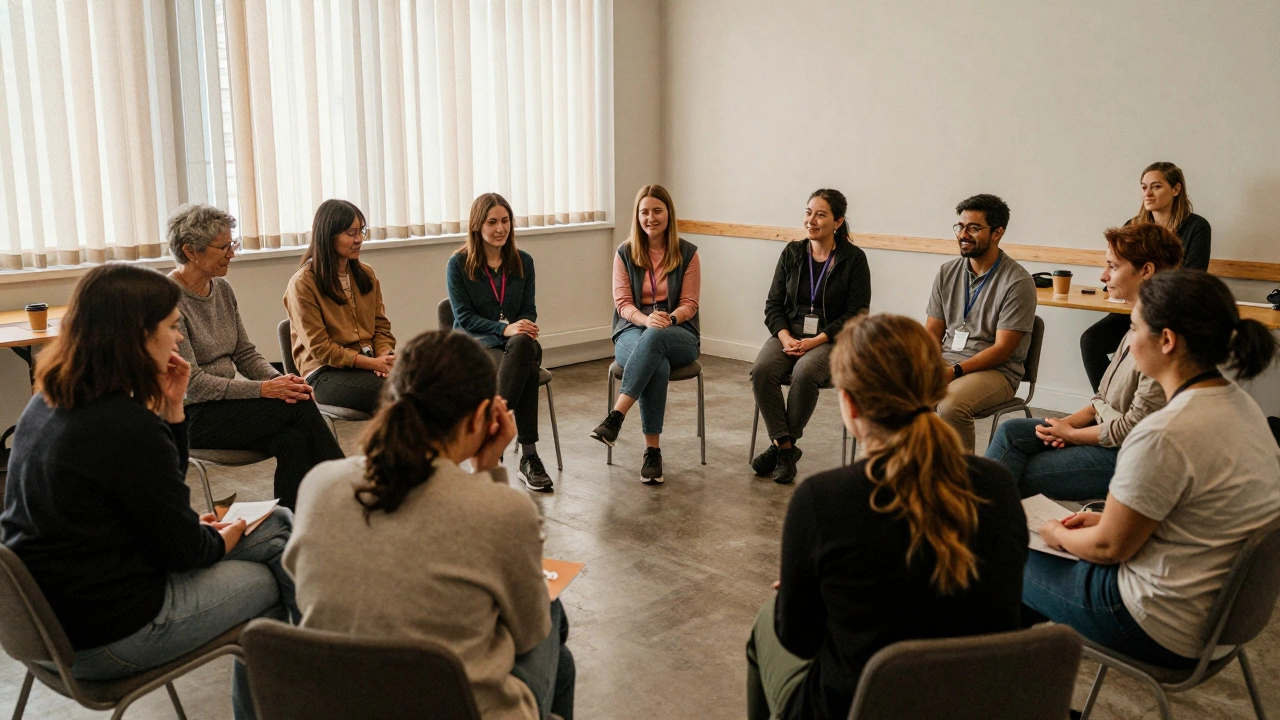Support Group at Holy Family Catholic Church Patchway: Your Friendly Place to Share and Heal
Ever felt like you needed someone who really gets what you’re going through? Our support groups are exactly that – a safe, welcoming circle where you can speak freely and receive encouragement. Whether you’re dealing with grief, parenting challenges, addiction recovery, or just the everyday stress of life, there’s a group that fits your situation.
All groups meet in the church hall, a bright, comfortable room that feels more like a living room than a formal setting. The vibe is relaxed, the coffee is always on hand, and the facilitator is a trained volunteer who guides the conversation without judgment. You’ll find that sharing your story often lightens the load, and listening to others can spark new ideas for coping.
How to Join a Support Group
Getting started is simple. Drop by the parish office during any service, send an email, or call the church office – the number is on the front door a‑frame. A staff member will give you a short rundown of the current groups, meeting days, and what each one focuses on. If you’re unsure which group is right, you can attend a welcome session where several group leaders give a quick intro. No commitment is required; you can try a few meetings before deciding what feels best.
Most groups meet once a week for about an hour, but there are also monthly workshops and occasional social outings. If you can’t make the regular time, ask about a different slot – we often have multiple groups covering the same topic at various times.
Why a Support Group Works
Human beings thrive on connection. When you talk about a problem with people who share similar experiences, you get practical tips and emotional relief that you won’t find scrolling online. The group setting also builds accountability; you’re more likely to follow through on your goals when others are cheering you on.
Our facilitators use proven methods like active listening, guided reflection, and goal‑setting exercises. They keep the conversation focused, make sure everyone gets a turn, and help turn stories into action steps. Over time, participants often notice reduced anxiety, better coping skills, and a stronger sense of belonging.
If you’re worried about privacy, rest easy. All members agree to a confidentiality pledge at the first meeting. What you say stays in the room, and you’re free to share as much or as little as you like.
Beyond the weekly meetings, the church offers additional resources – counseling services, prayer groups, and volunteer opportunities that complement the support group experience. You might even discover a new hobby or ministry that reignites your passion.
Ready to take the first step? Walk into the church after Sunday Mass, ask for the support group flyer, and sign up. It’s a small move that can lead to big changes in how you feel and handle life’s challenges. Join us, meet caring people, and start a journey toward healing together.

What Is the Difference Between a Support Group and a Therapy Group?
Support groups offer peer connection and emotional comfort, while therapy groups are led by professionals to drive change. Learn how each works and which one is right for your needs.
Read More
Support Group Alternatives: Other Names and Why They Matter
Tired of hearing the term 'support group'? You're not alone. There's a whole world of different names and formats for groups that help people through tough times, whether it's managing stress, grief, or big life changes. This article breaks down the most common alternative names for support groups and explains how those names reflect each group’s vibe. No jargon, just practical info and tips for figuring out which local community is right for you. Get ready to discover fresh ways to seek and give support, right in your own neighborhood.
Read More




